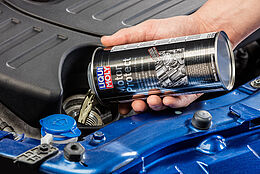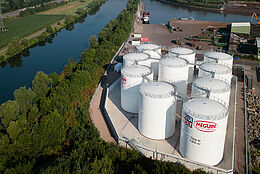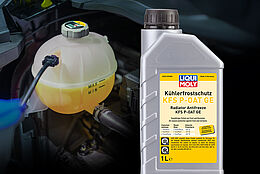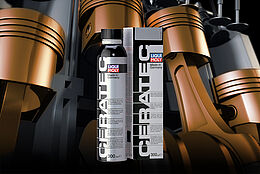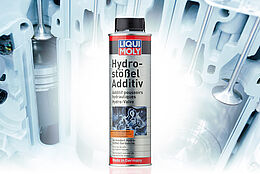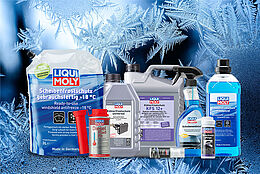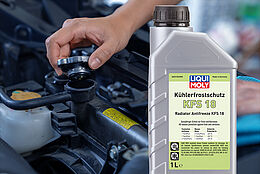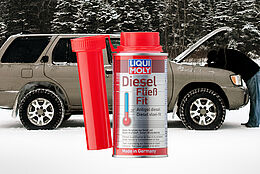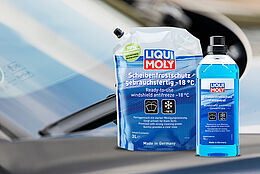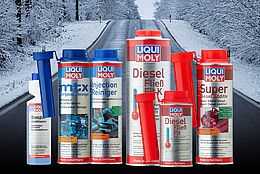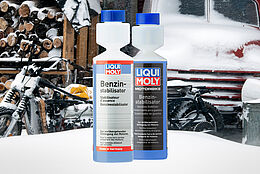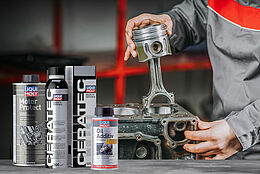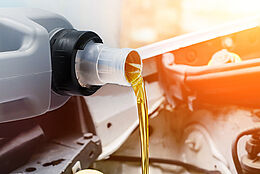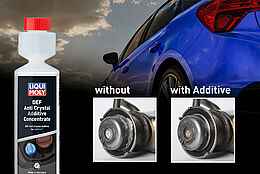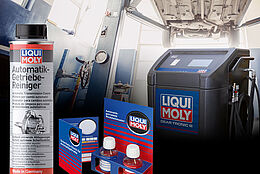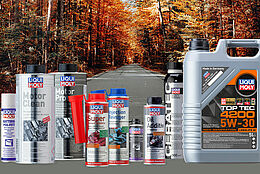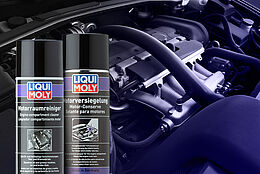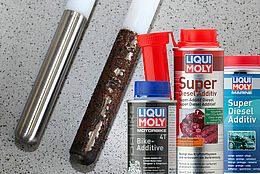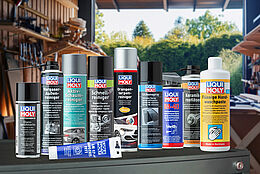- 4min
What are additives?
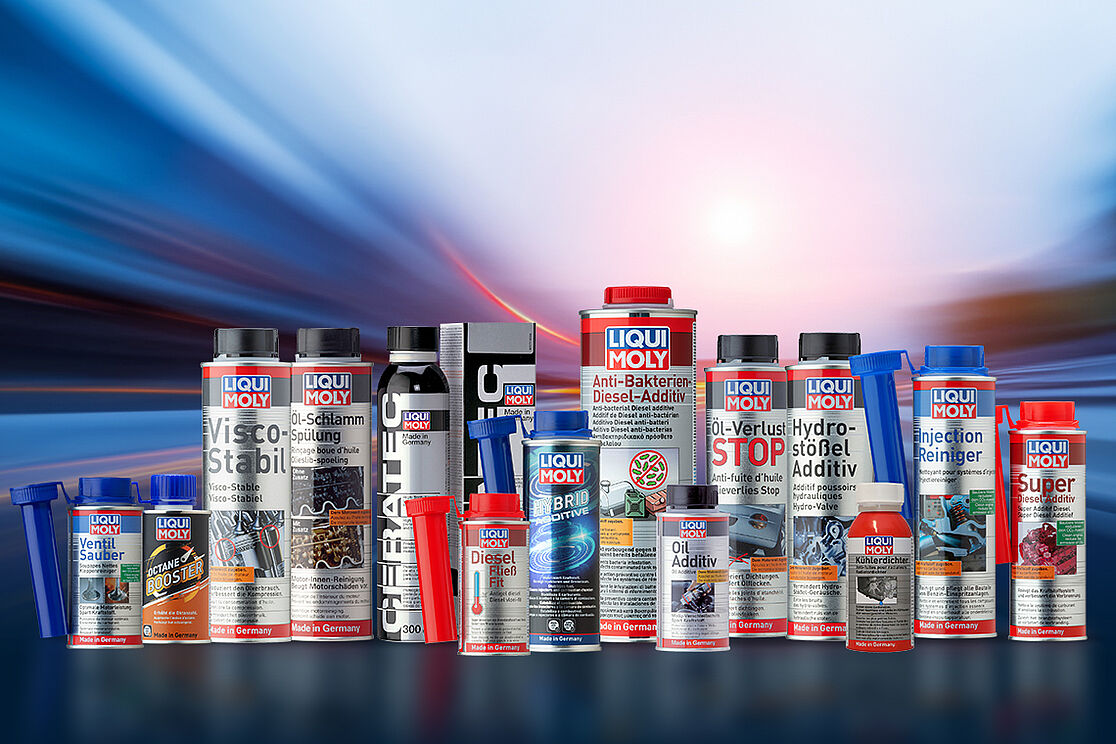
Additives, also known as auxiliary materials, are substances that are added to a product in small quantities to achieve or improve certain properties or to reduce or prevent undesirable properties. They can be used both preventively and to solve specific problems.
Three categories of additives
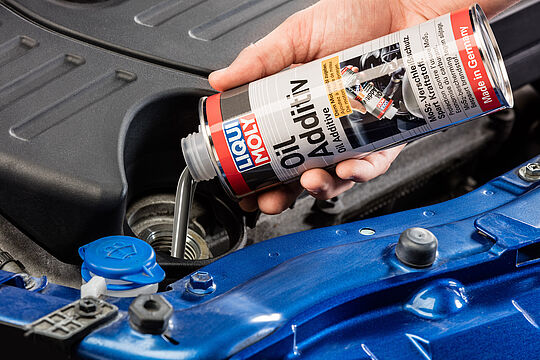
Öladditive
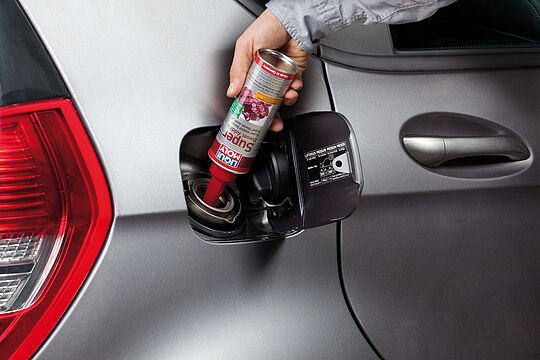
Kraftstoffadditive
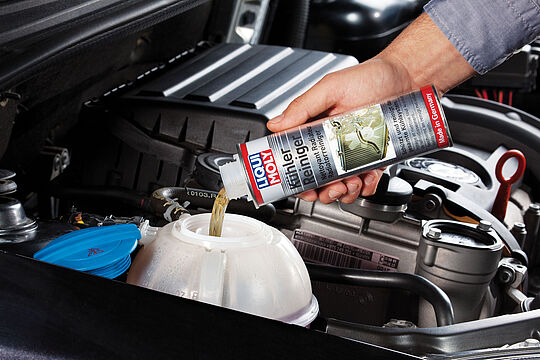
Kühlmitteladditive
Using additives
You don't have to visit a workshop to use our additives. Most of our additives can easily be added to the oil in the engine, transmission or steering system before filling up your vehicle's fuel or coolant. The instructions for how to do this can be found on the back of the respective product.
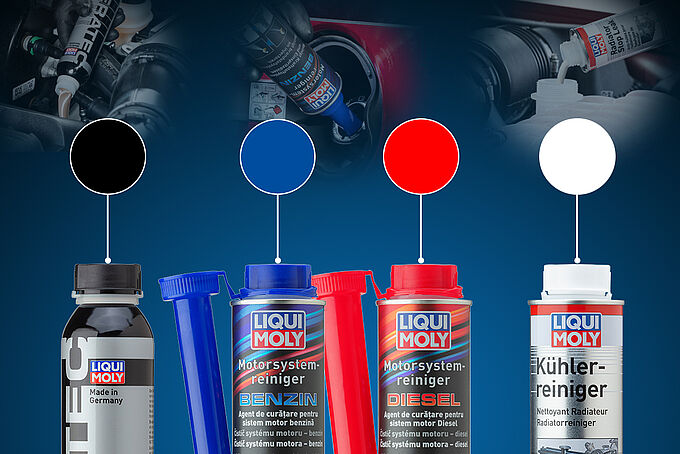
Explanation of the color coding of LIQUI MOLY additives
You can easily tell whether our additives are fuel, oil or coolant additives by the color of the cap. A black cap means that the additive is intended for the engine oil system. Additives with a blue cap are for gasoline fuel systems, and with a red cap for diesel. A white cap indicates that the additive should be used in the coolant system.
| Cap color | Usage |
| black | Engine oil |
| blue | Fuel, gasoline |
| red | Fuel, diesel |
| white | Coolant |
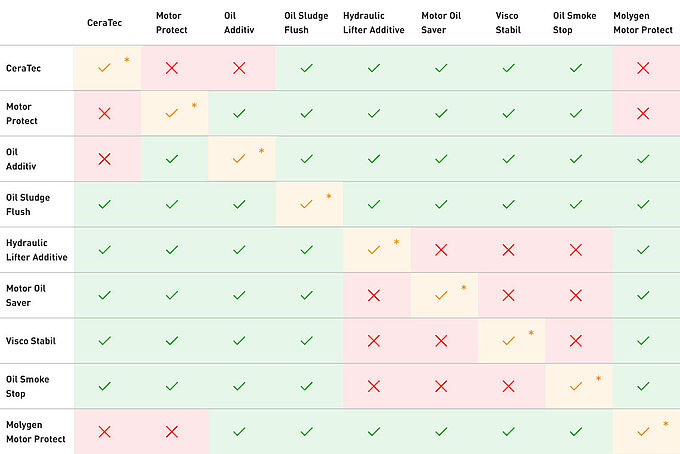
Mixing additives
We do not generally recommend mixing different additives! However, some combinations are possible.
Especially when adding engine oil additives, we recommend that these do not exceed 10 percent of the total amount of oil in the engine. Do not add more than two different engine oil additives. Please refer to our matrix to find out which additives can be combined with each other. Some additives cannot be mixed.
If you have any further questions about using additives, our application engineers will be happy to help you at any time.
What additives can do
Performance
Whether in the oil, fuel or cooling system: Due to the wide variety of processes acting during vehicle operation, deposits form over time on various components, such as valves, or in the combustion chamber. These lead to impaired functioning of expensive components and, often, loss of performance. Our additives not only remove contamination in the system, but also stop it from forming again when used as a preventive measure.
Problem solvers
Additives can prevent and solve many problems such as rough engine running, fuel aging, leaks in the oil or coolant circuit, and much more. Thanks to their cleaning, sealing or wear-reducing effect, they are the first choice when problems arise or there is a need to guard against them.
Reliability and safety
Unlike brakes or seat belts, additives have no direct influence on driving safety. However, they generally make a significant contribution to the reliability and operational safety of individual components as well as your entire vehicle.
Saving money
With their problem-solving properties, additives are often a cost-effective alternative to expensive repairs or the replacement of individual components. They also guard against wear and expensive damage, thereby increasing the service life of major assemblies and components.
Thanks to their cleaning effect, fuel consumption can also be reduced: Clean engines burn fuel more efficiently and make optimum use of the energy it contains. Compared to an engine contaminated with deposits, they therefore consume less fuel, which also contributes to a reduction in CO2 emissions.
You can also find useful information and answers to many questions about additives in our FAQ section.

